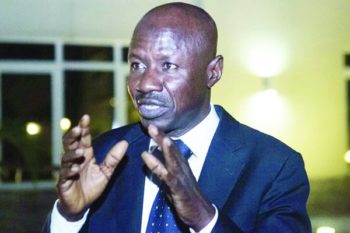
In 1991, three men conducted an experiment using computer graphics to show that it is possible to trigger motion without movement. In the paper titled “Motion without Movement”, William Freeman, Edward Adelson, and David Heegersdescribe a technique for displaying patterns that appear to move continuously without changing their positions. By applying local filters and continuously varying their phase, they introduced a method for assigning perceptual motion to objects that remain in fixed positions. In this method viewing a phase-shifting stimulus, like the sequence of filters, creates a visual illusion. The filters will appear like the entire pattern [both the ripples and the modulation envelope] is moving, but in the real sense there is no movement. It is this technique that is sometimes deployed in animation to provide the illusion of movement even when objects are in the same state. So you see a cartoon character in motion, but in actual fact no movement.
Aside from the technological expression of this concept, it is also visible in reality. Instances of motion without movement abound in our everyday encounter. It occurs when people pay rigorous attention to the wrong things that do not add value to expectations. It is what obtains when a big football team dominates a match with 80% of the ball possession yet a less fancied team scores one goal and wins the match. Many times it is demonstrative of the proverbial expression that an empty barrel makes the loudest noise. It makes the noise [motion] yet empty [movement]. This concept is what describes the current state of Nigeria’s fight against corruption going by the recent report of Transparency International. In its latest Corruption Perception Index, TI ranks Nigeria 148 out of 180 with an abysmal score of 27/100. Although the method for arriving at the conclusions, which is predicated on perceived levels of public sector corruption according to experts and businesspeople, does not necessarily go beyond people’s opinions, it is fairly representative of the aggregate public perception on corruption. And of course in recent times the Perception Index has become a popular gauge for prevalence of corruption among countries.
The latest report on Nigeria may not appear different because the country has not always been performing better in past years. However, the report appears to be in contrast with what the government wants Nigerians to believe. Nigeria slipped in the ranking by 12 positions, from 136 in 2016 to 148 in 2017.On the African continent, Nigeria ranks 32nd out of 52 countries assessed in 2017. Again, this deterioration is occurring at time when the agency responsible for fighting financial corrupt practices, EFCC, has become notorious for carrying out publicised raids and arrests, suggesting that the more things change the more they remain the same.
The ranking may be easily dismissed on the grounds that it only measures perception. But the undisputable reality is that corruption is still entrenched in our country and until we change direction, the nation’s future remains threatened by this scourge. It is a problem that actually threatens our corporate existence. A study by PricewaterhouseCoopers [PwC] titled the “Impact of Corruption on Nigeria’s Economy” concludes that corruption could cost Nigeria up to 37% of Gross Domestic Product[GDP] by 2030 if it is not tamed completely and immediately. Already the World Bank has estimated that about $30billion is lost to corruption annually in many countries of the world. The consequences of not fighting corruption are too dire to ignore. Our nation must change tactics and approach the fight from a nationalistic perspective and not the political format we are currently operating. We need a national redirection and reorientation in this regard.
The citizens need to change our disposition towards corrupt practices. For so long the fight has been left to the government and its agencies. We focus attention on the government while we ignore the minor and humongous corrupt practices taking place in our immediate environment. To change the perception both locally and internationally demands that we change our values as a nation. It demands that we reward honesty and transparency, and stop placing unwholesome demands on our kinsmen the moment they ascend elevated positions. It demands that we do not organise awards ceremony to celebrate individuals that have been alleged and sometimes indicted of corrupt practices. It demands that we do not confer chieftaincy titles on those who have amassed wealth they cannot answer for. It demands that our pastors do not create a special seat and sycophantically sing praises of those who evidently live above their income. Fighting corruption is a collective task that must be embraced by all. However, we all count on the government to lead the charge before evil completely prevails over good in our nation. We just cannot stop talking about this plague; it is now an embarrassment to our collective identity.